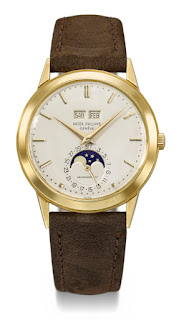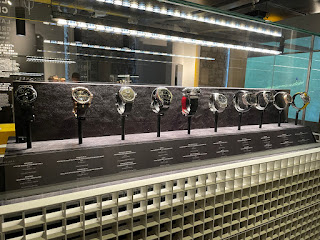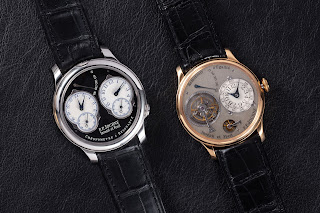Here are some of the most interesting timepieces seen
in the catalog of the upcoming Christie’s auction in Geneva.
Patek Philippe Perpetual Calendar Ref. 3448, dating back to 1970 is one of only three examples known publicly that are double signed for Patek Philippe’s Italian retailer, Hausmann & Co. in Rome. The present dial would be one of the last of the engraved hard enamelled dials to be used on the reference. The dials changed to printed signature and calendar numerals from 1971. Estimate: CHF 150,000-200,000.
Audemars Piguet Royal Oak. This timepiece is part of the first 2000 ‘A-series’ Royal Oaks ever created, with the serial number ‘A 1741’, the 1’741th piece to be made. It has an original ‘A-series’ dial, with the AP logo above the 6 o'clock index, and reads "Swiss" below 6 o'clock. Estimate: CHF 70,000-140,000.
This Cartier London 'Crash' features a large cursive script signature ‘Cartier London’ on the painted dial, a crisp heavy gold case and a matching gold ‘Crash’ folding clasp both with full Cartier London signature and hallmarks for 1990. Estimate: CHF 180,000-280,000.








































